Periodontology Treatment
Get detailed information about Periodontal diseases and treatments in Turkey.You can contact us for all your questions.
What is Periodontology?
Periodontology, also known as periodontics, is a branch of dentistry that focuses on the structures surrounding and supporting the teeth, including the gums, alveolar bone, cementum, and the periodontal ligament. The main objectives of this field are to diagnose, prevent, and treat periodontal diseases, which are diseases affecting these supporting structures.
Periodontal diseases, primarily periodontitis and gingivitis, are generally caused by bacterial infections that accumulate in dental plaque. Over time, these infections can lead to gum inflammation, bleeding, and eventual loss of teeth if not properly treated.
Periodontists, the specialists in this field, are trained to offer treatments such as scaling and root planing (a deep cleaning process), and can also perform surgical procedures aimed at treating more advanced periodontal diseases. Additionally, they may provide treatments to aesthetically enhance the gum line or to place dental implants to replace lost teeth.
Maintaining good oral hygiene, including regular brushing and flossing, is essential to prevent periodontal diseases, and periodontists often work closely with other dental professionals to ensure comprehensive care for their patients.
What Are Periodontal Diseases?
Periodontal diseases are conditions that affect the gums and supporting structures of the teeth. Here are some of the most common ones:
Gingivitis: The mildest form of periodontal disease, it is caused by bacterial plaque accumulation. Symptoms include red, swollen, and bleeding gums.
Chronic Periodontitis: A more severe form of gum disease characterized by the slow deterioration of the supporting tissues of the teeth, leading to gum recession and bone loss.
Aggressive Periodontitis: This type is relatively rare and occurs in patients who are otherwise clinically healthy. It is characterized by rapid loss of gum attachment and bone destruction.
Periodontitis as a Manifestation of Systemic Diseases: In some cases, periodontitis is linked with other systemic diseases such as heart disease, diabetes, and rheumatoid arthritis.
Necrotizing Periodontal Disease: This is a severe infection characterized by the necrosis of gum tissue, periodontal ligament, and alveolar bone. It is commonly seen in individuals with systemic conditions such as HIV infection, malnutrition, or immunosuppression.
Abscess of the Periodontium: An acute localized bacterial infection within the periodontal pocket, causing painful swelling and potentially leading to tissue and bone destruction if left untreated.
Understanding the early signs of periodontal diseases and seeking timely intervention can prevent more severe problems, including tooth loss. Regular dental check-ups and maintaining a good oral hygiene routine are essential in preventing these diseases.
How to Treat Periodontal Diseases?
The treatment of periodontal diseases requires a combination of professional dental treatments and proper oral hygiene. Treatments;
- Professional Dental Cleaning
- Scaling and Root Planing
- Antibiotics
- Surgery
- Lifestyle Changes
- Regular Dental Check-ups
It is essential to consult with a dental healthcare provider to determine the best treatment plan for an individual’s specific circumstances. Early intervention can often prevent more serious complications from developing.
How is Periodontological Treatment Done?
Periodontological treatment begins with a detailed medical and dental history analysis followed by a clinical examination that might include X-rays to evaluate the bone supporting the teeth. The cornerstone of treatment often involves non-surgical procedures such as scaling and root planing, which entails deep cleaning below the gum line and smoothing the root surfaces to encourage gum reattachment to the teeth.
Depending on the severity of the disease, surgical interventions like flap surgery, bone grafts, and tissue grafts may be required. Moreover, patients might be given medications to manage infections. Advancements in the field have introduced laser therapy as a less invasive alternative to traditional surgery, promoting quicker healing.
Essential to the treatment’s success is ongoing maintenance including regular professional cleanings and advised lifestyle adjustments such as improving diet and quitting smoking. The specific course of treatment is individualized, hinging on a variety of factors including the extent of the disease and the patient’s overall health.
Periodontology in Turkey
In Turkey, periodontology services are offered by both public and private healthcare institutions. Many Turkish dentists and periodontists have been trained to international standards, offering advanced and high-quality treatments. Moreover, many dental professionals in the country often undergo further training and courses abroad, bringing back a wealth of knowledge and expertise in the latest techniques and technologies in the field of periodontology.
Several universities and educational institutions in Turkey offer robust dentistry programs, which include substantial training in periodontology, focusing both on the prevention and treatment of periodontal diseases. These programs foster research and academic advancements in the field, contributing to a high standard of periodontal care in the country.
Furthermore, Turkey has become a popular destination for medical tourism, including dental services, due to the combination of high-quality healthcare services and affordable prices compared to many Western countries. Periodontal treatments are among the services sought by international patients, benefiting from modern facilities and experienced specialists available in the country.
The symptoms of periodontal disease can include red, swollen, or bleeding gums, persistent bad breath, and loose or sensitive teeth. Early detection through regular dental check-ups can prevent severe complications.
Treatment begins with non-surgical procedures like scaling and root planing to clean below the gumline and remove plaque and tartar. In more severe cases, surgical interventions such as flap surgery or bone grafts might be necessary.
Yes, research suggests that there is a link between periodontal disease and other health issues such as heart disease, diabetes, and rheumatoid arthritis. Maintaining good oral hygiene is therefore important not just for oral health but for overall well being.
